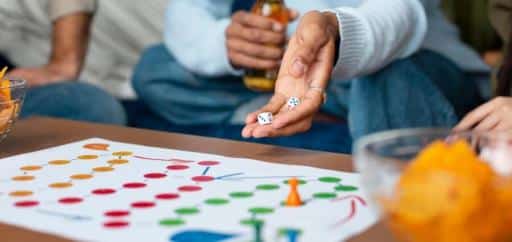In recent years, online color prediction games have become increasingly popular among gaming enthusiasts worldwide. While these games offer excitement and entertainment, there is growing concern about their potential impact on mental health. In this article, we explore the various ways in which online color prediction games can influence mental health and well-being, examining both the positive and negative aspects of their usage.
Positive Impacts:
Stress Relief:
For many players, engaging in online color prediction games serves as a means of stress relief and relaxation. The immersive nature of these games can provide a temporary escape from daily stressors, offering a welcome distraction and a chance to unwind after a long day.
Cognitive Stimulation:
Online color prediction games often require players to use cognitive skills such as pattern recognition, decision-making, and strategic planning. Engaging in these mental exercises can help stimulate the brain, enhance cognitive function, and improve problem-solving abilities over time.
Social Connection:
Many online color prediction games offer multiplayer features that allow players to interact with friends, family, and fellow gamers in virtual environments. These social connections can foster a sense of belonging, camaraderie, and friendship, providing valuable social support and reducing feelings of loneliness and isolation.
Negative Impacts:
Addiction:
One of the most significant concerns surrounding online color prediction games is the potential for addiction. The addictive nature of these games, characterized by repetitive gameplay loops, reward mechanisms, and variable reinforcement schedules, can lead to compulsive gaming behavior and excessive time spent online.
Financial Risks:
Online color prediction games often involve real-money transactions, where players wager money on predicting color outcomes. For some individuals, this can lead to financial risks, including gambling addiction, debt, and financial hardship, particularly among vulnerable populations such as youth and individuals with pre-existing gambling tendencies.
Psychological Distress:
Excessive gaming and gambling can contribute to psychological distress, including symptoms of anxiety, depression, and mood disorders. The pressure to win, fear of missing out (FOMO), and negative emotions associated with losses can exacerbate existing mental health issues and lead to a cycle of unhealthy gaming behavior.
Mitigating Risks and Promoting Well-being:
Setting Limits:
Players can mitigate the risks associated with online color prediction games by setting clear boundaries and limits on their gaming behavior. Establishing designated gaming times, taking regular breaks, and prioritizing other activities can help maintain a healthy balance between gaming and other aspects of life.
Seeking Support:
Individuals experiencing difficulties with online color prediction games should seek support from friends, family, or mental health professionals. Support groups, counseling services, and online resources are available to help individuals cope with gaming-related issues and develop healthier habits.
Responsible Gaming Practices:
Platform operators and game developers play a crucial role in promoting responsible gaming practices and protecting player well-being. Implementing age verification measures, providing educational resources on responsible gaming, and offering support services for players experiencing difficulties are essential steps in creating a safe and supportive gaming environment.
Conclusion:
While online color prediction games can offer enjoyment and cognitive benefits, they also pose risks to mental health and well-being, particularly when played excessively or irresponsibly. By understanding the potential impacts of these games and taking proactive steps to mitigate risks, players, platform operators, and game developers can work together to promote a healthy gaming culture that prioritizes player well-being and responsible gaming practices at 91club app.








